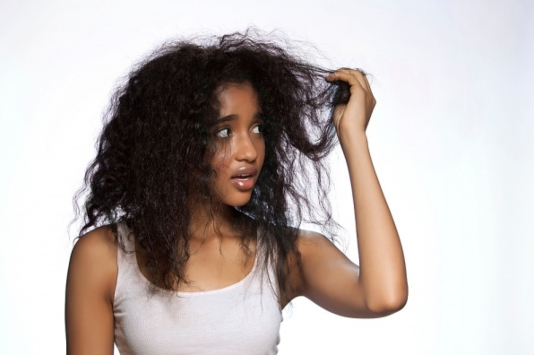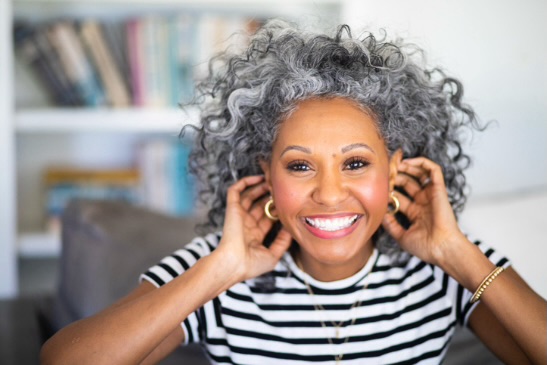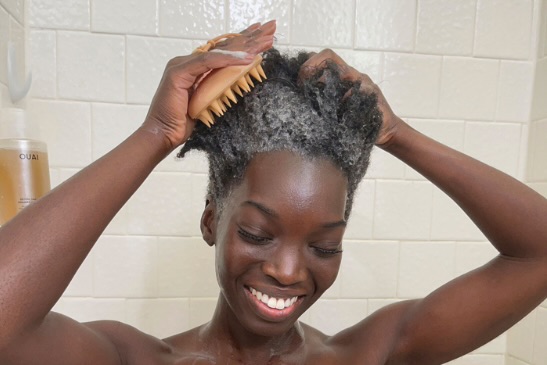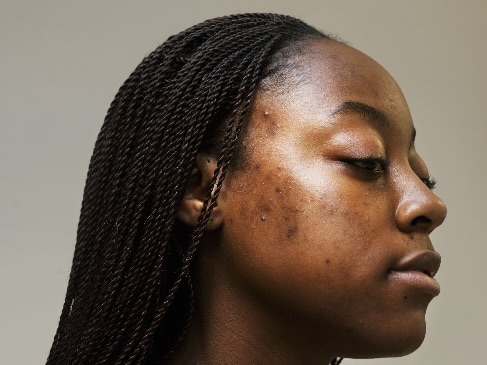For many Black women, achieving long and healthy hair can feel like an elusive goal.
While everyone’s hair growth journey is unique, several factors can impede growth and leave you feeling stuck in a hair rut.
Understanding these factors is crucial to developing an effective hair care routine that fosters growth and vitality.
Here are the top reasons affecting hair growth in Black women and how to address them.
1. Genetics
Genetics plays a significant role in hair growth patterns. Some individuals may naturally have slower hair growth rates or thinner hair. While you can’t change your genetic makeup, understanding your hair type and growth pattern can help you set realistic expectations. Embrace your unique texture and find styles and products that work best for you.
2. Diet and Nutrition
What you eat has a direct impact on the health of your hair. A diet lacking essential nutrients, such as protein, vitamins (especially A, C, D, and E), iron, and omega-3 fatty acids, can lead to weak, brittle hair and stunted growth. To promote healthy hair, focus on a balanced diet rich in fruits, vegetables, whole grains, lean proteins, and healthy fats. Consider consulting a nutritionist for personalized advice on supplements that can support hair growth.
3. Scalp Health
A healthy scalp is the foundation for healthy hair growth. Issues like dryness, dandruff, or scalp conditions can hinder growth. Regularly cleanse and exfoliate your scalp to remove buildup and promote blood circulation. Use scalp treatments containing natural ingredients like tea tree oil, aloe vera, or apple cider vinegar to maintain a clean and balanced scalp environment.
4. Hair Care Practices
Improper hair care practices can contribute to breakage and slow growth. Over-manipulation, excessive heat styling, and using harsh chemicals can damage the hair shaft and hinder progress. Instead, adopt a gentle hair care routine that includes regular trims, protective styles, and moisture retention. Opt for heatless styling methods and use a wide-toothed comb or your fingers to detangle wet hair, minimizing breakage.
5. Protective Styling
While protective styles are excellent for retaining length, improper installation or prolonged wear can lead to tension on the hair and scalp, resulting in breakage or traction alopecia. Ensure your protective styles are not too tight and give your hair breaks between styles. Aim to moisturize your hair regularly while in protective styles to keep it hydrated and healthy.
6. Stress and Hormones
Stress and hormonal imbalances can significantly affect hair growth. High-stress levels can lead to hair loss, while hormonal changes due to menstruation, pregnancy, or menopause can also impact hair health. Incorporate stress-reducing practices such as yoga, meditation, or regular exercise into your routine to support overall well-being.
Conclusion
If you feel stuck in a hair rut, understanding the factors affecting your hair growth is the first step toward making meaningful changes.
By focusing on genetics, nutrition, scalp health, hair care practices, protective styling, and stress management, you can create an environment that supports healthy hair growth. Embrace your hair journey, and remember that patience and consistency are key!




